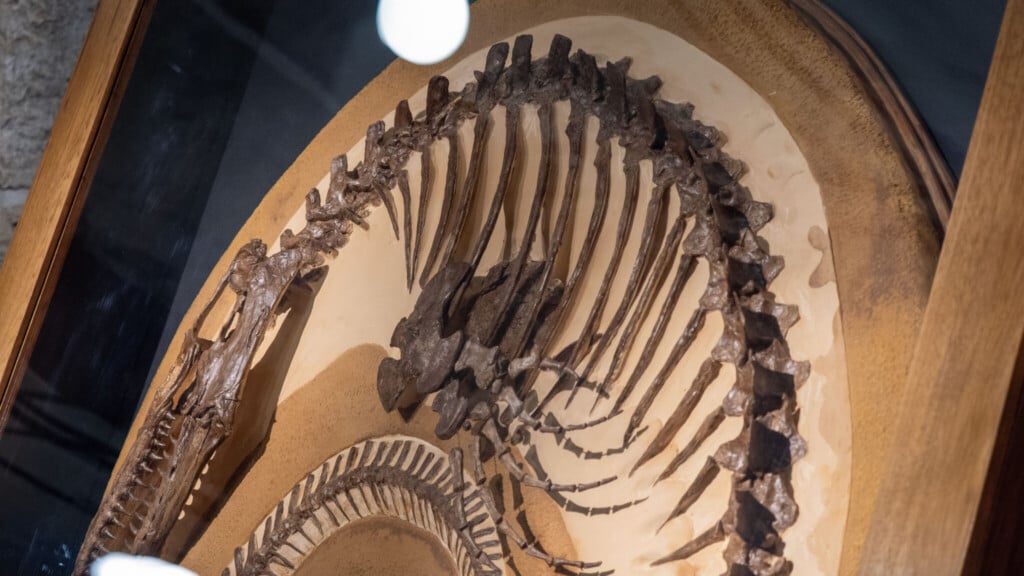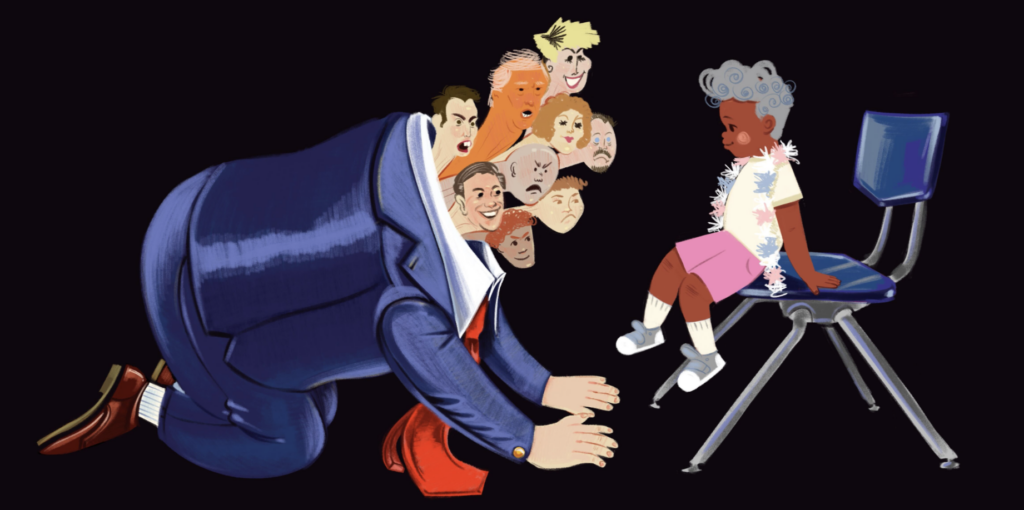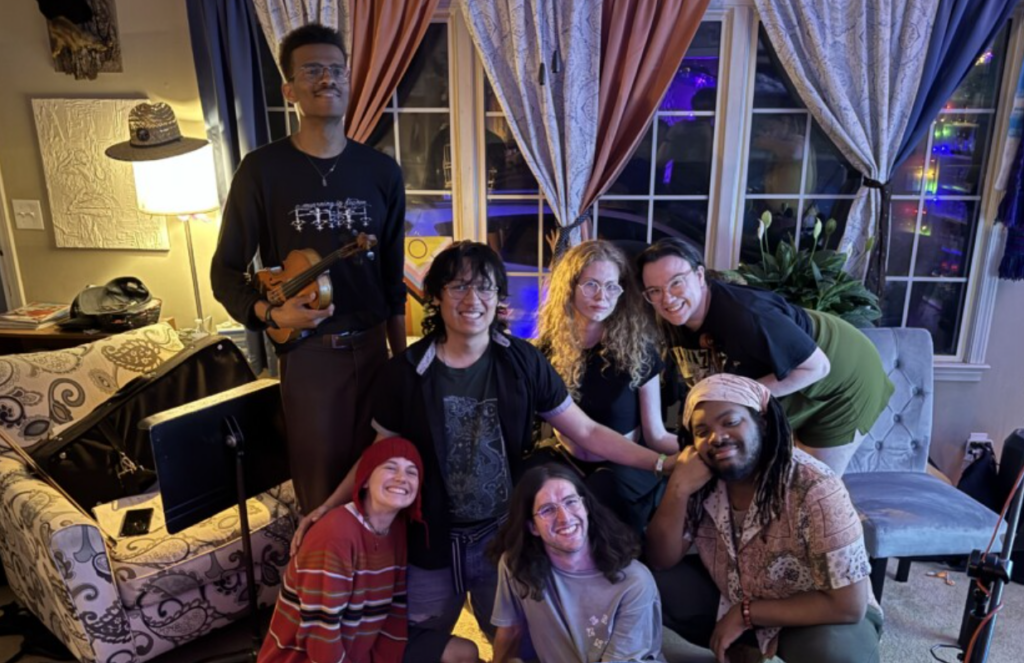All you need is love in the Living Room’s Song

%{[ data-embed-type=”image” data-embed-id=”57150bf089121ca96b952e0c” data-embed-element=”aside” ]}%
Wouldn’t it be something if your family accepted you for who you were rather than how they’d like you to be? Especially your siblings and your in-laws.
That ideal tolerance was the first thing I noticed about the characters — the family members — who inhabit the Living Room’s Love Song. Everyone seemed able to look beyond one another’s foibles, shortcomings and just plain absurdness, though there was plenty to go around.
In that same spirit, we engage quickly with the figures in John Kolvenbach’s 2008 play: Harry, Joan, Beane and Molly, each likable despite obvious quirks. Their spit-quick repartee, perfectly timed, streams by, and we grab hold, the characters’ personableness overshadowing their more unpleasant qualities.
The Living Room first performed this play in 2010, and this revival, soundly directed by Katie Gilchrist, includes three-fourths of its original cast. The actors appear comfortable, but not complacent, in their characters’ skins, delivering Kolvenbach’s crisp, vivid language and allowing us to see the play’s world through their eyes. And until it slows near the end, Love Song pops with vitality.
Beane (Bryan Moses) is alone and isolated inside his four walls, a box that seems at times to be closing in on him (depicted literally — scenic design by Ryan Zirngibl). How he thinks about boxes and the living things that might inhabit them emerges in a funny sequence at the start of the play, when his brother-in-law, Harry (Rusty Sneary), attempts to give him a multiple-choice personality test — a “pretend-psychology quiz,” argues Joan (Shawnna Journagan), Beane’s sister.
Why Harry wants to administer this exam isn’t specifically stated, but it’s clear that Beane is off. “It could help him,” Harry implores. “It’s diagnostic!” But Joan, who mostly lacks Beane’s sensitivity and empathy, is protecive of her brother. “Harry,” she warns, “if you yell at him, I will come over there and I will slap you.”
Then there’s Molly (Vanessa Davis), who shows up in Beane’s life unexpectedly, an apparent burglar. She notes Beane’s eccentricity, rendered obvious by the barren state of his home. “Who are you?” Molly asks him. “Are you a monk? a musician?” It’s a question later posed to a waiter (in a cameo appearance by a guest actor). He clearly sings to an unfamiliar tune.
Watching Sneary and Journagan play off each other is one of the pleasures of this mostly humorous work. Sneary’s immersive performance is another. He subtly maneuvers between a wryly observant Harry — “You fired another intern? … an intern is a volunteer, practically” — and the Harry that still feels like a kid. Harry’s reminiscence of his first impressions of Joan is itself worth the admission. As is Harry and Joan’s “personal day,” which accentuates their idiosyncrasies and bond. Journagan is both funny and touching in her portrayal of the split-persona Joan: a wound-up adult but softer sister.
Moses, who has excelled as a director, can sometimes be stiff onstage, but he slips right into the oddball Beane: spacey, sweet and a little bit lost. When he meets his sister for lunch, we feel his newfound ravenous hunger — for more than food.
Even though we first meet Beane’s mysterious girlfriend, Molly, as she attempts to commit a crime, we’re intrigued. Davis imbues this cynical, shadowy, street-smart person with the right mix of verve and simpatico. We wonder just what she’s about.
We’re captivated by these contentious and singular people. Whatever form love takes here — familial, romantic — it is indeed what makes up this Song‘s melody. Love influences Beane as well as Harry and Joan, who are confused by his behavior before they’re affected — or, perhaps, infected — by it. And this odd, imperfect family and its particular view of the world, in turn, touches us.
E-mail deborah.hirsch@pitch.com




